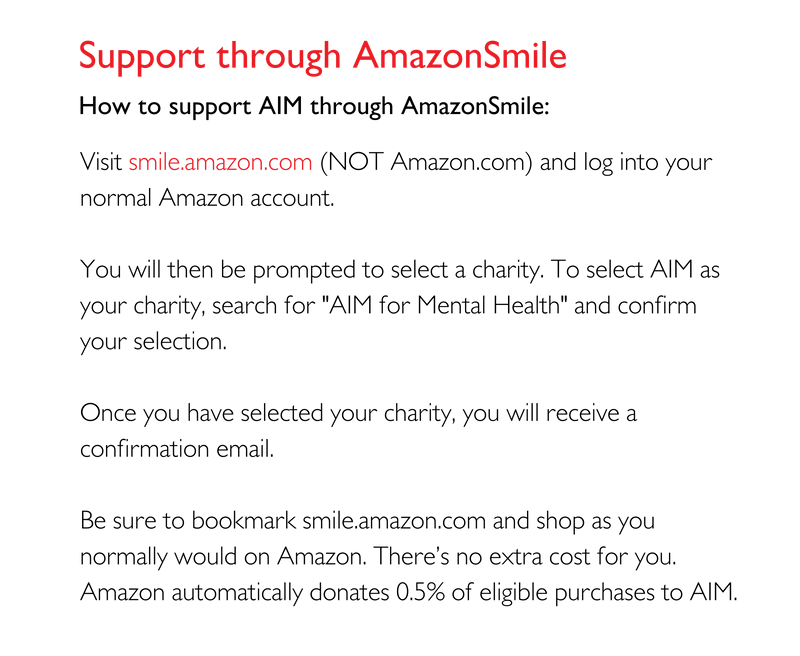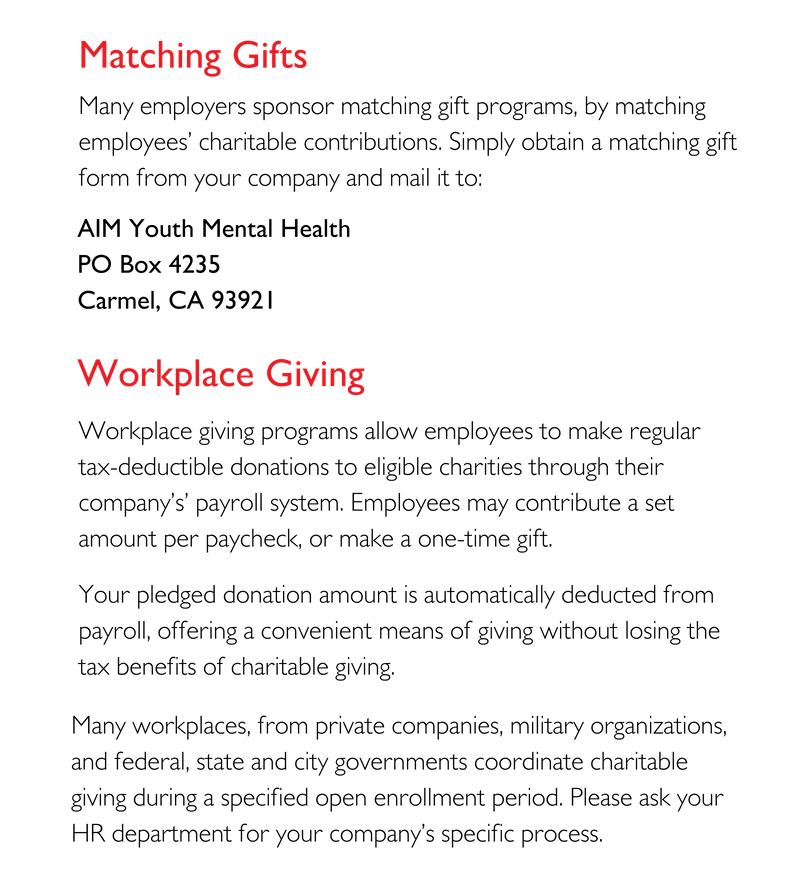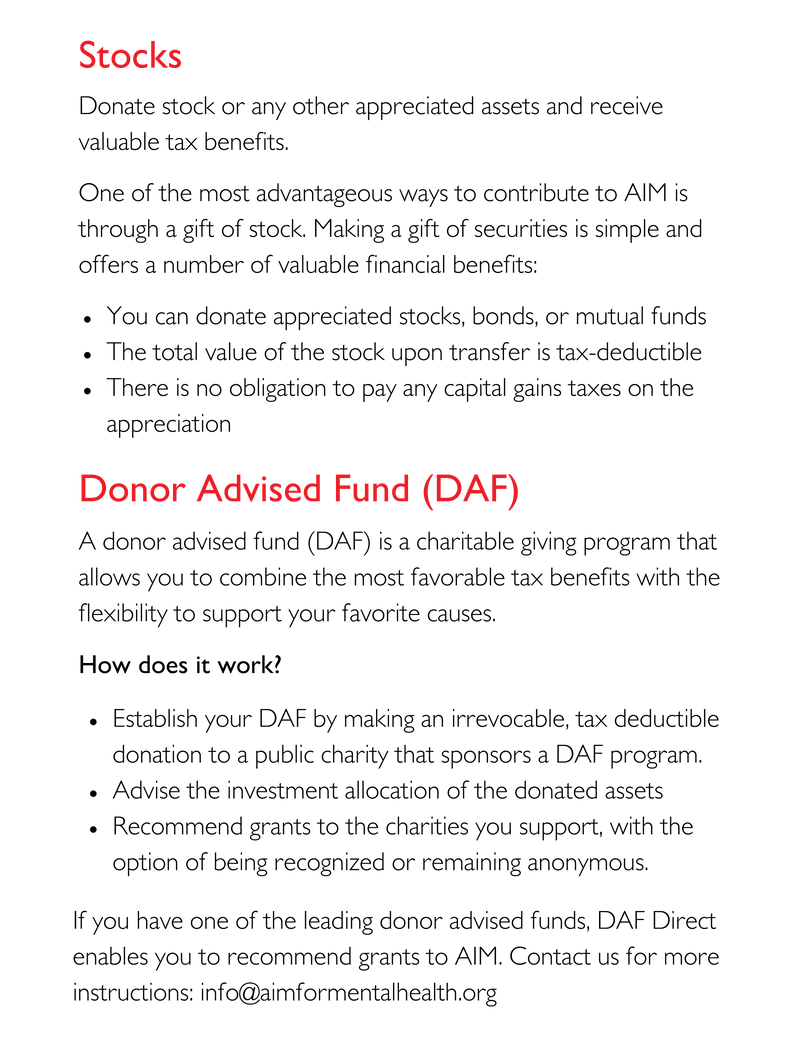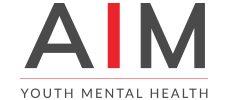Join our monthly email list:
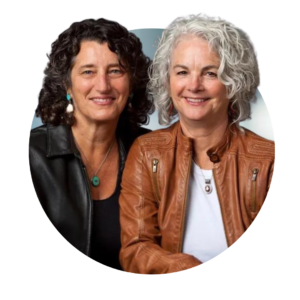
Speaker: Elizabeth Scott, LCSW, CEDS-S | escottlcsw@gmail.com
In this presentation Elizabeth will present the Be Body Positive model developed in 25 years of school based eating disorders prevention. She will share the messages teachers and parents can promote with their children to support resilience against eating problems and body dissatisfaction and she will describe the exciting initiative that The Body Positive and AIM are building to prevent eating disorders in Monterey County.
Bio: Elizabeth Scott and Connie Sobzak founded The Body Positive in 1996 because of their shared passion to create a lively, healing community that offers freedom from suffocating societal messages that keep people in a perpetual struggle with their bodies.
Elizabeth and Connie have been fortunate to spend time with a widely diverse group of people for more than two decades. Their work is informed by every one of the precious souls who has shared their unique body experience. They have made a commitment to honestly telling their own stories, and offering space for others to do the same without fear of judgment, comparison, or criticism. It is in this type of environment that each one of us can find what we need to become embodied: to tell our own truth and step fully into—and love—our unique selves.
Participants will be able to:
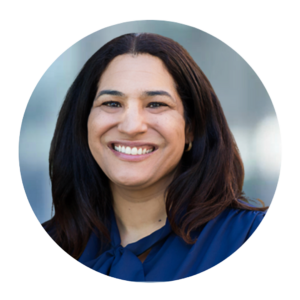
Speaker: Dayna Long, MD | Pediatrician | Dayna.Long@ucsf.edu
The research team from the 5-year study on Adverse Childhood Experiences will share their findings and methods for using PEARLS Pediatric ACEs and Related Life Events Screener as a tool for recognition, early intervention, and prevention.
Bio: Dr. Dayna Long is a pediatrician with special interests in community health and engagement, and in promoting equity in health care. In her practice, she loves supporting parents and caregivers, and her patients fill her with inspiration and awe. Her goal is to enable all children to be as healthy as possible by eliminating the inequities that lead to poor health outcomes for many families and young children.
Long’s research and advocacy examines ways to make communities healthier, such as shifting traditional health care practices to team-based models focused on prevention.Long earned her medical degree from the George Washington University School of Medicine and Health Sciences. At UCSF Benioff Children’s Hospital Oakland, she completed a residency in pediatrics and a fellowship in infectious diseases. She has additional training in incorporating cultural humility into patient care.
In her free time, Long loves spending time with her three sons. One of the highlights of her career was meeting former President Barack Obama.
Participants will be able to:
1.Pediatrics ACE and Related Life Events Screener (PEARLS) and Children’s Health in a Pediatric Safety-Net Health System. Neeta Thakur, Danielle Hessler, Kadiatou Koita, Morgan Ye, Mindy Benson, Rachel Gilgoff, Monica Bucci, Dayna Long, Nadine Burke Harris. Child Abuse and Neglect
(DOI: 10.1016/j.chiabu.2020.104685)
2.Koita K, Long D, Hessler D, Benson M, Daley K, Bucci M, et al. (2018) Development and implementation of a pediatric adverse childhood experiences (ACEs) and other determinants of health questionnaire in the pediatric medical home: A pilot study. PLoS ONE 13(12): e0208088. https://doi.org/10.1371/journal.pone.0208088
3.Jeung, J., Hessler Jones, D., Frame, L. et al. A Caregiver-Child Intervention for Mitigating Toxic Stress (“The Resiliency Clinic”): A Pilot Study. Matern Child Health J 26, 1959–1966 (2022). https://doi.org/10.1007/s10995-022-03485-4
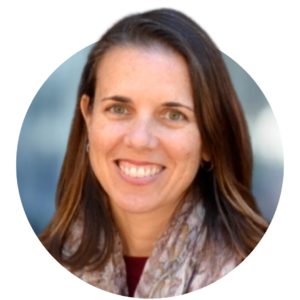
Speaker: Vicki Harrison, MSW | Program Director for Stanford’s Center for Youth Mental Health & Wellbeing | vickih@stanford.edu
Discover how a peer-focused, youth-led initiative can support middle-high school student mental health, amplify youth voice, and advocate for mental health and technology reform. Highlighting their #goodforMEdia campaign, youth leaders will discuss social media’s direct impact on their lives and strategies to minimize harm and maximize the benefits.
Bio: Vicki Harrison has over twenty years of experience working within the public health, education and mental health sectors developing innovative, community-based programs at the local, state and national levels. As Program Director for Stanford Psychiatry’s Center for Youth Mental Health & Wellbeing, she implements a broad portfolio of community-based projects promoting wellbeing, early intervention and increased access to mental health services for young people ages 12-25. This includes allcove – a first of its kind integrated youth mental health model in the U.S. and a national Media and Mental Health Initiative, partnering with the media, mental health and technology sectors to enhance the positive impact of media on youth mental health and wellbeing. She also serves as a founding member of the TikTok Content Advisory Council.
Participants will be able to:

Speaker: Katherine Ellison | Pulitzer Prize-winning Journalist | kathyellison@comcast.net
It’s not quite the blind leading the blind — more often it’s like one scatterbrained hothead losing track of another. As awareness of ADHD continues to increase, millions of parents are realizing they have something fundamental — and frustrating — in common with their kids. Katherine Ellison, a Pulitzer Prize-winning journalist and author of “Buzz: A Year of Paying Attention,”
Katherine was diagnosed with ADHD at age 48, shortly after her 12-year-old son. She offers tips on how to handle this potentially perilous path and emerge with family relationships and a measure of sanity intact.
Participants will be able to:
1) Describe ADHD and how it manifests in and potentially complicates family life.
2) Give examples of how to avoid the pitfalls of the “ADHD Industrial Complex,” the multitude of supposed “silver bullets” on sale that can cost precious money and time.
3) Describe some of the strategies that worked for Katherine to help her son survive school and bring peace to her family, primarily including mindfulness, education, and compassion.
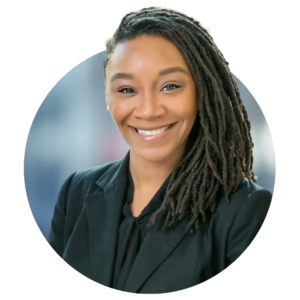

Speaker: Steven Adelshiem, MD | Youth and Adult Psychiatrist | sadelshe@stanford.edu | Link to Bio/CV
Steven Adelsheim, MD is a child/adolescent and adult psychiatrist who works to support community behavioral health partnerships locally, regionally, at the state level and nationally. He is the Director of the Stanford Center for Youth Mental Health and Wellbeing in the Department of Psychiatry. Dr. Adelsheim has partnered in developing statewide mental health policy and systems, including those focused on school mental health, telebehavioral health, tribal behavioral health programs, and suicide prevention. For many years Dr. Adelsheim has been developing and implementing early detection/intervention programs for young people in school-based and primary care settings, including programs for depression, anxiety, prodromal symptoms of psychosis, and first episodes of psychosis. Dr. Adelsheim is also involved in the implementation of integrated behavioral health care models in primary care settings as well as the use of media to decrease stigma surrounding mental health issues. He is currently leading the US effort to implement the headspace model of mental health early intervention for young people ages 12-25 based in Australia. Dr. Adelsheim also leads the national clinical network for early psychosis programs called PEPPNET.

Speaker: Shashank Joshi, MD, FAAP, DFAACAP | Professor of Psychiatry, Pediatrics and Education | svjoshi@stanford.edu
Bio: Shashank V. Joshi, MD, FAAP, DFAACAP, is Professor of Psychiatry, Pediatrics and Education at the Stanford University School of Medicine and Graduate School of Education (by courtesy), and the Director of School Mental Health at Lucile Packard Children’s Hospital. Professor Joshi is a Faculty Advisor at the Center for Comparative Studies in Race and Ethnicity (CCSRE), the John Gardner Center for Youth & their Communities in the Graduate School of Education, and the Stanford Center for Asian Health Research and Education (CARE). Among many roles at Stanford, he also serves on the HumBio Curriculum Committee, Advisory Board for Stanford Introductory Studies (SIS), and VPUE Undergraduate Advisory Council. In September 2022, he was appointed to a 3-year term as Assistant Vice Provost for Academic Well-being in the Office of the Vice Provost of Undergraduate Education (VPUE).
He is a Distinguished Fellow of the American Academy of Child & Adolescent Psychiatry (AACAP), and former Co-chair of the AACAP Committee on Schools. He is a member of the Board of Directors of Project Safety Net Palo Alto, the Advisory Boards of the National Center on School Mental Health (NCSMH) and the Jed Foundation, and a member of the Student Mental Health Policy Workgroup for the State of California. He has been the recipient of numerous awards in teaching and public service, most recently The Polymath Award (2021), given for excellence across multiple mission areas of the Stanford University Department of Psychiatry & Behavioral Sciences.

Speaker: Jennifer Fenton, LMFT | jennifer@equinehealing.org
Bio: Jennifer has a history of working with those who are least able to access or afford mental health services and has experience working with at-risk youth, individuals in crisis, and special needs children. She is certified and/or trained in several evidenced based practices such as Motivational Interviewing, Seeking Safety, Aggression Replacement Training, Client Centered Treatment Planning, Hostage Negotiations, Critical Incident Stress Management, and Mindfulness. Jennifer’s passion for helping those in need led her to the concept of forming a non-profit agency that will combine her passion for equines and her mental health experience. Her vision for this non-profit is to continue to treat those in need including; veterans, at-risk youth, special needs children, and many others seeking alternative treatments that promote mental and emotional health.
Participants will be able to:

Speaker: Amanda Zonghi, M.Ed. | Assistant Director of Chartwell High School | azonghi@chartwell.org
The educational system is an environment that can nurture youth to grow and develop into strong whole individuals. The educational system at the same time can be an environment that applies stigma to individuals with educational labels related to an individual’s difference. These differences emerge from dis/abilities, mental health diagnoses, marginalized identity markers and/or other medical impairments. When an educational system focuses on diversity, equity, inclusion and justice the marginalization of individuals impacted by stigma related to educational labels decreases. With the application of best educational practices to support mental health along with holistic viewpoints a reduction of stigma related to educational labels can occur. There is a call to action in all educational spaces to reframe the understanding of educational labels. All educational spaces need to become nurturing for youth to become strong whole individuals despite a difference whether that be mental health and/or learning difference related.
Participants will be able to:
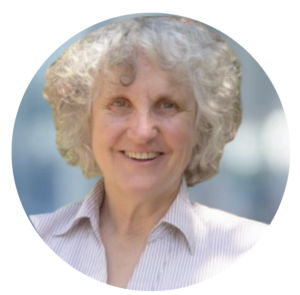
Speaker: Laurie Grossman, BA, MBSR | lgrossman@innerexplorer.org
Over the last few decades, mindfulness has become a common intervention to address mental health issues for adults and youth outside of school. In this session, attendees will understand why mindfulness should be a part of every school’s curriculum every day of the school year. While poverty and pressure to succeed have always impacted students from different walks of life, Covid, climate change, school violence, and society’s dysfunction have amplified the mental health stakes for all students, teachers and families. In this presentation, attendees will practice mindfulness, learn about the science behind its effectiveness, come to understand why mindfulness should be a school-based tool, and be exposed to Inner Explorer. A non-profit serving 2.2 million preK-12 students across the country, Inner Explorer is a low-hanging fruit that delivers with ease, an effective, daily mindfulness tool, benefitting teachers as much as students in pre K-12 classrooms. When teachers forget to use their program, often their students remind them!
Bio: Laurie Grossman, one of the founders of the mindfulness in education movement, has been an activist since 1975—she believes that mindfulness in schools is the tool most likely to help achieve social justice. Over the last two decades, she started two innovative programs: one that created partnerships between private and public schools, and one that brought mindfulness into schools. In 2007, as part of Park Day School’s Community Outreach Program, she and two colleagues launched a pilot program of mindfulness in an Oakland, CA, elementary school that was covered in The New York Times and on NBC. Grossman is cofounder of Mindful Schools, now one of the largest mindfulness-in-education programs in the world. She currently works with Inner Explorer, an organization focused on bringing daily mindfulness practices into schools to improve educational outcomes and the well-being of children and teachers. She is passionate about Inner Explorer because the organization has made mindfulness scalable, providing easy and immediate access to every K–12 classroom, anywhere, anytime.
Participants will be able to:
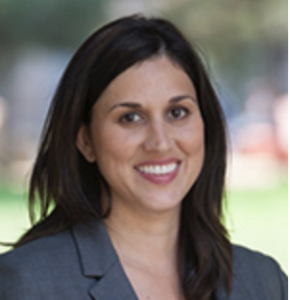
Speaker: Neeta Thakur, MD | Associate Professor (UCSF) | neeta.thakur@ucsf.edu
The research team from the 5-year study on Adverse Childhood Experiences will share their findings and methods for using PEARLS Pediatric ACEs and Related Life Events Screener as a tool for recognition, early intervention, and prevention.
Bio: Dr. Thakur is an Associate Professor at the University of California, San Francisco (UCSF) and a physician-scientist specialized in pulmonary and critical care medicine. Her research program focuses on the short and long-term health effects of multilevel stressors, with emphasis in historically marginalized populations. She has linked multiple data types (biologic, individual, and environmental) to demonstrate that environmental and social risk factors are geo-spatially distributed, disproportionately burden communities of color, and are associated with clinically relevant health outcomes. Dr. Thakur is the co-PI of the Pediatric ACES and Resilience Study, a longitudinal cohort study to examining the negative biologic and health effects of Adverse Childhood Experiences and included the development of the Pediatric ACEs and Related Life Events Screener (PEARLS) Tool.
Participants will be able to:
1.Pediatrics ACE and Related Life Events Screener (PEARLS) and Children’s Health in a Pediatric Safety-Net Health System. Neeta Thakur, Danielle Hessler, Kadiatou Koita, Morgan Ye, Mindy Benson, Rachel Gilgoff, Monica Bucci, Dayna Long, Nadine Burke Harris. Child Abuse and Neglect (DOI: 10.1016/j.chiabu.2020.104685) 2.Koita K, Long D, Hessler D, Benson M, Daley K, Bucci M, et al. (2018) Development and implementation of a pediatric adverse childhood experiences (ACEs) and other determinants of health questionnaire in the pediatric medical home: A pilot study. PLoS ONE 13(12): e0208088. https://doi.org/10.1371/journal.pone.0208088 3.Jeung, J., Hessler Jones, D., Frame, L. et al. A Caregiver-Child Intervention for Mitigating Toxic Stress (“The Resiliency Clinic”): A Pilot Study. Matern Child Health J 26, 1959–1966 (2022). https://doi.org/10.1007/s10995-022-03485-4

Speaker: Monica Bucci, MD | Physician | monica@drmonicabucci.com
The research team from the 5-year study on Adverse Childhood Experiences will share their findings and methods for using PEARLS Pediatric ACEs and Related Life Events Screener as a tool for recognition, early intervention, and prevention.
Bio: I am Dr. Monica Bucci, MD, a physician, neuroscientist, author, wife and life enthusiast, deeply passionate about the human brain. I am the Director of Research at the Center for Youth Wellness in San Francisco and an author of scientific research on how our brain and body respond to stress. Using the science of stress-related growth, I offer a new approach to understanding how life’s stress can activate the brain to adapt to unprecedented change.
Born and raised in Rome, the magnificent capital of Italy, my father taught me to appreciate beauty and art since I was a little girl.
I wanted to know why people who experienced serious life challenges were able not only to survive but to experience profound transformation that surpassed what was present before their struggle. How do these individuals find a way to thrive, often despite physically and mentally traumatic experiences? How do they rebuild a new sense of self after their identity has been shaken at its core?
After earning my medical degree, a dual specialty in Neurology and Radiology in Italy and a fellowship in Neuroradiology at the University of California San Francisco (UCSF), one of the top medical universities in the world, I landed a position as Faculty Researcher at UCSF.
Participants will be able to:
1.Pediatrics ACE and Related Life Events Screener (PEARLS) and Children’s Health in a Pediatric Safety-Net Health System. Neeta Thakur, Danielle Hessler, Kadiatou Koita, Morgan Ye, Mindy Benson, Rachel Gilgoff, Monica Bucci, Dayna Long, Nadine Burke Harris. Child Abuse and Neglect
(DOI: 10.1016/j.chiabu.2020.104685)
2.Koita K, Long D, Hessler D, Benson M, Daley K, Bucci M, et al. (2018) Development and implementation of a pediatric adverse childhood experiences (ACEs) and other determinants of health questionnaire in the pediatric medical home: A pilot study. PLoS ONE 13(12): e0208088. https://doi.org/10.1371/journal.pone.0208088
3.Jeung, J., Hessler Jones, D., Frame, L. et al. A Caregiver-Child Intervention for Mitigating Toxic Stress (“The Resiliency Clinic”): A Pilot Study. Matern Child Health J 26, 1959–1966 (2022). https://doi.org/10.1007/s10995-022-03485-4

Speaker: Jessie Bucci, M. Ed. | jessie.b@bringchange2mind.org
Participants will be able to:
Constantino, S. M. (2021). Engage every family: Five simple principles (Second). Corwin, a SAGE Company.

Keynote Speaker: Marc Bracket, Ph.D., | marc.brackett@yale.edu
Marc Brackett, Ph.D., is founding director of the Yale Center for Emotional Intelligence and professor in the Child Study Center, Yale School of Medicine at Yale University. As a researcher for over 20 years, Marc has focused on the role of emotions and emotional intelligence in learning, decision making, creativity, relationships, health, and performance. Marc is the author of the bestselling book, Permission To Feel (Celadon/Macmillan), which has been translated into 22 languages. Most recently, with Pinterest co-founder Ben Silbermann, Marc and his team co-created the Apple award-winning app, HowWeFeel, that was designed to teach emotion skills and enhance well-being.
Bio: Marc A. Brackett is a research psychologist and the Founding Director of the Yale Center for Emotional Intelligence and Professor in the Child Study Center at Yale University. Brackett earned his Ph.D. in psychology from the University of New Hampshire in 2003, where he was supervised by emotional intelligence scholar John D. Mayer. He was a postdoctoral fellow at Yale University with Mayer’s collaborator, Peter Salovey. Brackett’s research focuses on the role of emotional intelligence in learning, decision making, relationship quality, and mental health; the measurement of emotional intelligence; best practices for bringing emotional intelligence into schools and organizations; and the influences of emotional intelligence training on student and educator effectiveness, bullying prevention, and school climate. He is the author, co-author, and editor of over 125 scholarly publications and the developer of two university courses on emotional intelligence.[citation needed] His most recent book is Permission to Feel: Unlocking the Power of Emotions to Help Our Kids, Ourselves, and Our Society Thrive.
Brackett is the lead developer of RULER, an evidence-based approach to social emotional learning that has been approved by CASEL (Collaborative for Academic, Social, and Emotional Learning). The acronym RULER refers to the five key emotion skills of Recognizing, Understanding, Labeling, Expressing, and Regulating emotions. RULER intends to increase personal wellbeing, effective teaching and leadership, academic achievement, and classroom emotional climate change. An essential aspect of RULER is that it involves training for educational leaders, teachers, support staff, students and families. To date, RULER has been adopted by 2009 schools across the globe, reaching over 1,000,000 students.
Publications
Brackett, M. A., & Kremenitzer, J. P., with Maurer, M., Carpenter, M., Rivers, S. E., & Elbertson, N. (Eds.). (2011). Creating emotionally literate classrooms: An introduction to The RULER Approach to Social and Emotional Learning. Portchester, New York: National Professional Resources.
Brackett, M. A., Rivers, S. E., Reyes, M. R., & Salovey, P. (in press). Enhancing academic performance and social and emotional competence with the RULER Feeling Words Curriculum. Learning and Individual Differences.
Rivers, S. E., Brackett, M. A., Reyes, M. R., & Salovey, P. (in press). Improving the social and emotional climate of classrooms: A clustered randomized controlled trial testing The RULER Approach. Prevention Science.
Reyes, M. R., Brackett, M. A., Rivers, S. E., Elbertson, N., & Salovey, P. (in press). The interaction effects of program training, dosage, and implementation quality on targeted student outcomes for The RULER Approach to social and emotional learning, School Psychology Review.
Brackett, M. A., Patti, J., Stern, R., Rivers, S. E., Elbertson, N., Chisholm, C., & Salovey, P. (2009). A sustainable, skill-based model to building emotionally literate schools. In R. Thompson, M. Hughes, & J. B. Terrell (Eds.), Handbook of developing emotional and social intelligence: Best practices, case studies, and tools (pp. 329–358). New York: John Wiley & Sons, Inc.
Rivers, S. E., & Brackett, M. A. (2011). Achieving standards in the English language arts (and more) using The RULER Approach to Social and Emotional Learning. Reading and Writing Quarterly, 27, 75–100.
Brackett, M. A., Reyes, M. R., Rivers, S. E., Elbertson, N. E., & Salovey, P. (2011). Classroom Emotional Climate, Teacher Affiliation, and Student Conduct. Journal of Classroom Interactions, 46, 27–46.
Reyes, M. R., Brackett, M. A., Rivers, S. E., White, M., Mashburn, A. J., & Salovey, P. (in press). Classroom emotional climate, student engagement, and academic achievement, Journal of Educational Psychology.
Brackett, M. A., Rivers, S. E., & Salovey, P. (2011). Emotional intelligence: Personal, Social, Educational, and Workplace Implications. Social and Personality Psychology Compass, 5, 88–103.
Brackett, M. A., Palomera, R., Mojsa, J., Reyes, M., & Salovey, P. (2010). Emotion regulation ability, job satisfaction, and burnout among British secondary school teachers. Psychology in the Schools, 47, 406–417.
Rivers, S. E., Brackett, M. A., Cook, M., Omori, M., Sickler, C., & Salovey, P. (in press). Emotion skills as a protective factor for risky behaviors among college students. Journal of College Student Development.
Brackett, M. A., Rivers, S., Shiffman, S., Lerner, N., & Salovey, P. (2006). Relating emotional abilities to social functioning: A comparison of performance and self-report measures of emotional intelligence. Journal of Personality and Social Psychology, 91, 780–795.
Brackett, M. A., & Mayer, J. D. (2003). Convergent, discriminant, and incremental validity of competing measures of emotional intelligence. Personality and Social Psychology Bulletin, 29, 1147–1158.
Brackett, M. A., Reyes, M. R., Rivers, S. E., Elbertson, N., & Salovey, P. (in press). Assessing teachers’ beliefs about social and emotional learning. Journal of Psychoeducational Assessment.
Brackett, M. A., & Geher, G. (2006). Measuring emotional intelligence: Paradigmatic shifts and common ground. In J. Ciarrochi, J. P. Forgas & J. D. Mayer (Eds.), Emotional intelligence and everyday life (2nd ed.) (pp. 27–50). New York, NY: Psychology Press.
Brackett, M. A., & Salovey, P. (2004). Measuring emotional intelligence as a mental ability with the Mayer-Salovey-Caruso Emotional Intelligence Test. In G. Geher (Ed.), Measurement of Emotional Intelligence (pp. 179–194). Hauppauge, NY: Nova Science Publishers.

Speaker: Rachel Kramer, PhD | Assistant Clinical Professor | Rachel.kramer@ucsf.edu
Eating disorders (ED) have high medical risk, particularly among adolescents and have demonstrable impacts on families. Family Based Treatment (FBT), is a first-line treatment for adolescents with ED, focuses on empowering families to reverse the medical risk of ED symptoms through collaboration and focusing first on improving nutrition. ED develop in diverse demographics and are often under-detected if weight status is the primary focus of diagnosis, while degree and rate of weight loss are greater predictors of medical risk. As such, it is essential to really assess overall eating behaviors to assess medical risk and ED severity. This presentation will elaborate on FBT and minimizing weight stigma.
Bio: Dr. Rachel Kramer, received her B.A. in psychology from Montclair State University, M.A. from American University, and earned her Ph.D. in clinical psychology at the University of North Dakota in 2018. She also completed a postdoctoral fellowship and joined the clinical faculty at Cincinnati Children’s Hospital Medical Center. She has extensive training in family-based treatment (FBT) and providing FBT-informed care to youth and their families in an inpatient medical setting. Dr. Kramer also incorporates motivational interviewing, dialectical behavior therapy (DBT), and acceptance and commitment therapy (ACT) principles during care, as appropriate. Her research interests range from evaluating protective factors (e.g., body appreciation and self-compassion) against eating disorder development, understanding factors that impact eating disorder treatment and symptom severity (e.g., perceived caregiver burden, weight stigma/weight status), and studying the impact of eating disorders on families. She is an active member of the Academy for Eating Disorders serving as co-chair of the FBT SIG and co-facilitator of the FBT in Higher Levels of Care Consultation Group.
Participants will be able to:
1. Schaumberg, K., Welch, E., Breithaupt, L., Hübel, C., Baker, J. H., Munn-Chernoff, M. A., Yilmaz, Z., Ehrlich, S., Mustelin, L., Ghaderi, A., Hardaway, A. J., Bulik-Sullivan, E. C., Hedman, A. M., Jangmo, A., Nilsson, I. A. K., Wiklund, C., Yao, S., Seidel, M., & Bulik, C. M. (2017). The Science Behind the Academy for Eating Disorders’ Nine Truths About Eating Disorders. European Eating Disorders Review, 25(6), 432–450. https://doi.org/10.1002/erv.2553 2. Lock, J., & Grange, D. L. (2015). Treatment Manual for Anorexia Nervosa, Second Edition: A Family-Based Approach (Vol. 2). Guilford Publications. 3. Garber, A. K. (2018). Moving Beyond “Skinniness”: Presentation Weight Is Not Sufficient to Assess Malnutrition in Patients With Restrictive Eating Disorders Across a Range of Body Weights. The Journal of Adolescent Health : Official Publication of the Society for Adolescent Medicine, 63(6), 669–670. https://doi.org/10.1016/j.jadohealth.2018.09.010
 Moving Upstream: A Proactive Approach to Addressing Behaviors and Bullying
Moving Upstream: A Proactive Approach to Addressing Behaviors and BullyingSpeaker: Summer Prather-Smith, EdD | sprather@santaritaschools.org | Link to Summer’s Bio
Community is built through collective responsibility, participation and investment. Effectively addressing student behaviors and bullying requires schools to create a community that provides consistent, affirming, caring connections for all its members. Throughout this workshop participants will have the opportunity to actively engage with the “Upstream” equity-based strategies and practices that build community, proactively address discipline, and stop bullying.
Barr, J., & Saltmarsh, S. (2014). “It all comes down to the Leadership”: The role of the school principal in fostering parent-school engagement. Educational Management Administration & Leadership, 42(4), 491–505. https://doi.org/10.1177/1741143213502189. Constantino, S. M. (2021). Engage every family: Five simple principles (Second). Corwin, a SAGE Company.
Goodall, J. (2018). Learning-centered parental engagement: Freire reimagined. Educational Review, 70(5), 603–621. https://doiorg.proxy.library.cpp.edu/10.1080/00131911.2017.1358697
Brubaker, T.H., Brubaker, E., Link, M. (2001). School Violence: Partnerships with Families for School Reform. Michigan Family Review, 6(1), 1-11. DOI: http://dx.doi.org/10.3998/mfr.4919087.0006.101
 Krista Reuther is the Assistant Director of Ohana’s Community Health and Prevention Program. She received her Masters in Public Health and Social Work at UC Berkeley. She comes to this position after 14 years of clinical social work experience at Stanford Children’s Hospital in pediatric oncology, critical care, and bereavement. Her goal is to reduce the incidence of mental illness in children and adolescents in Monterey County.
Krista Reuther is the Assistant Director of Ohana’s Community Health and Prevention Program. She received her Masters in Public Health and Social Work at UC Berkeley. She comes to this position after 14 years of clinical social work experience at Stanford Children’s Hospital in pediatric oncology, critical care, and bereavement. Her goal is to reduce the incidence of mental illness in children and adolescents in Monterey County.
Outside of work, Krista enjoys practicing yoga, cooking plant based cuisine, and walking along the beach with her family.
 Dr. Guss is a 35-year veteran educator with a doctorate degree in Educational Leadership. She served as a classroom teacher for 10 years, including two years as a teacher in a bilingual program in South Central Los Angeles. She has also served as a college professor, mentor teacher for new teachers, and a master teacher for teacher candidates completing their student teaching experience. She continues to be a strong advocate for the teaching profession.
Dr. Guss is a 35-year veteran educator with a doctorate degree in Educational Leadership. She served as a classroom teacher for 10 years, including two years as a teacher in a bilingual program in South Central Los Angeles. She has also served as a college professor, mentor teacher for new teachers, and a master teacher for teacher candidates completing their student teaching experience. She continues to be a strong advocate for the teaching profession.
Dr. Guss has been an administrator here in Monterey County for 25 years serving as an assistant principal, principal, director of curriculum and instruction, associate superintendent of educational services and as district superintendent. Dr. Guss also served as the Deputy Superintendent of the Monterey County Office of Education (MCOE) for six years prior to becoming County Superintendent. During her tenure she has received numerous awards for her service in education and her service to the community. Recently, Dr. Guss was awarded as the Ruth Vreeland Public Official of the Year.
Dr. Guss serves as a Core Convener for the Bright Futures Cradle to Career Initiative, is a member and current Past Chair of the Monterey County Children’s Council, and is a member of the Hartnell College Bond Oversight Committee. She was also appointed to serve on the Fiscal Crisis & Management Assistance Team (FCMAT) Board beginning in January 2021.
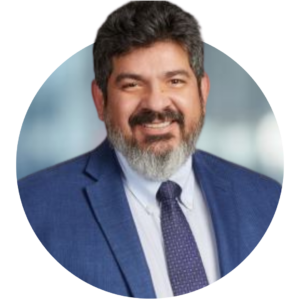 Fellowship: Stanford University School of Medicine (1994) CA
Fellowship: Stanford University School of Medicine (1994) CA Michael G. Thompson, Ph.D. is a consultant, author and psychologist specializing in children and families. He is the supervising psychologist for the Belmont Hill School and has worked in more than seven hundred schools across the United States, as well as in international schools in Central America, Europe, Africa and Asia.
Michael G. Thompson, Ph.D. is a consultant, author and psychologist specializing in children and families. He is the supervising psychologist for the Belmont Hill School and has worked in more than seven hundred schools across the United States, as well as in international schools in Central America, Europe, Africa and Asia.
He and his co-author, Dan Kindlon, wrote the New York Times best-selling book, Raising Cain: Protecting the Emotional Life of Boys (Ballantine Books, 1999). He is the author of Speaking of Boys: Answers to the Most-Asked Questions about Raising Sons (Ballantine, 2000), and co-author (with Catherine O’Neill Grace and Larry Cohen, Ph.D.) of Best Friends/Worst Enemies: Understanding the Social Lives of Children (Ballantine, 2001) and Mom, They’re Teasing Me: Helping Your Child Solve Social Problems (Ballantine, 2002.) About Best Friends, Worst Enemies the Publishers Weekly review declared, “Not since Dr. Spock and Penelope Leach has there been such a sensitive and practical guide to raising healthy children.” The Pressured Child: Helping Your Child Achieve Success in School and in Life (with Teresa Barker, Ballantine, 2004) was written to help parents understand the complex journey of children through school, from Kindergarten through senior year. His third book on the psychology of boys, entitled, It’s a Boy!: Understanding Your Son’s Development from Birth to Eighteen, was published in 2008. It focuses on the importance of undirected, free play in the lives of boys. Dr. Thompson’s newest book, Homesick and Happy: How Time Away From Parents Can Help a Child Grow, was published by Ballantine Books in May of 2012.
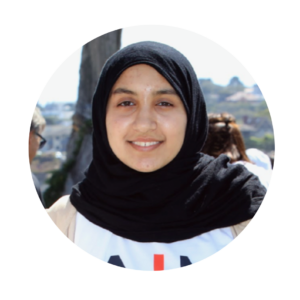 is 15 years old and a sophomore at Marina High School in Marina, CA. Her academic interests include math, history, and psychology. She joined the AIM Ideas Lab in 2021 because she wanted to be a part of something that could have a great impact on her community. Marwa is interested in youth mental health because she has always been fascinated with the human mind and she wants to support those that are suffering who may feel like their challenges in life aren’t important enough or are too afraid to seek necessary help.
is 15 years old and a sophomore at Marina High School in Marina, CA. Her academic interests include math, history, and psychology. She joined the AIM Ideas Lab in 2021 because she wanted to be a part of something that could have a great impact on her community. Marwa is interested in youth mental health because she has always been fascinated with the human mind and she wants to support those that are suffering who may feel like their challenges in life aren’t important enough or are too afraid to seek necessary help.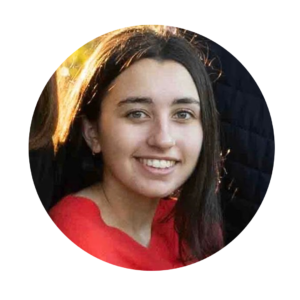 Giovanna Panetta is a 16 year old junior at Carmel High School. She has always been called to STEM subjects, specifically biology. The AIM Ideas Lab instantly attracted her attention as a research opportunity. Gia has always comprehended the importance of mental health. She knows that COVID only exacerbated previously existing problems, and that as a community we can try and find the root of those problems. Mental health is an integral part of life, and can impede a body’s ability to be healthy. She strongly believes that life is worth living, and she wants to help anyone that thinks otherwise.
Giovanna Panetta is a 16 year old junior at Carmel High School. She has always been called to STEM subjects, specifically biology. The AIM Ideas Lab instantly attracted her attention as a research opportunity. Gia has always comprehended the importance of mental health. She knows that COVID only exacerbated previously existing problems, and that as a community we can try and find the root of those problems. Mental health is an integral part of life, and can impede a body’s ability to be healthy. She strongly believes that life is worth living, and she wants to help anyone that thinks otherwise. Dr. Friedman completed her undergraduate degree in Psychology from University of California San Diego (UCSD). She went on to complete her masters and doctorate degrees (Ph.D.) in Clinical Psychology from Rosalind Franklin University of Medicine and Science/Chicago Medical School. Dr. Friedman completed her pre-doctoral internship at Rush University Medical Center, Chicago, IL, and her post-doctoral fellowship training at the VA San Diego Healthcare System. Her clinical training and experience has been focused primarily on comprehensive assessment and effective treatments for anxiety, mood and related disorders. Dr. Friedman has extensive experience in providing Cognitive Behavioral Therapies for anxiety disorders (e.g. worry, OCD, social anxiety, phobias and PTSD), depression, adjustment disorders/life stress, insomnia and body-focused repetitive behaviors (e.g. Trichotillomania and skin picking). She has received training in evidence-based interventions for a variety of specific problems, including exposure with response prevention (ERP) for treatment of OCD, Prolonged Exposure (PE) for treatment of PTSD, and Cognitive Behavioral Therapy for Insomnia (CBT-I). Moreover, she has specialty training in the treatment of childhood anxiety and related disorders, such as ADHD, selective mutism, separation anxiety, PTSD, depression and specific phobias. In addition, Dr. Friedman has developed an expertise in research on Trichotillomania and body-focused repetitive behaviors, which has led to numerous local and national presentations. Dr. Friedman regularly attends local and national conferences, training seminars and workshops in order to stay informed on the most up to date treatments and apply state of the art science into her clinical practice.
Dr. Friedman completed her undergraduate degree in Psychology from University of California San Diego (UCSD). She went on to complete her masters and doctorate degrees (Ph.D.) in Clinical Psychology from Rosalind Franklin University of Medicine and Science/Chicago Medical School. Dr. Friedman completed her pre-doctoral internship at Rush University Medical Center, Chicago, IL, and her post-doctoral fellowship training at the VA San Diego Healthcare System. Her clinical training and experience has been focused primarily on comprehensive assessment and effective treatments for anxiety, mood and related disorders. Dr. Friedman has extensive experience in providing Cognitive Behavioral Therapies for anxiety disorders (e.g. worry, OCD, social anxiety, phobias and PTSD), depression, adjustment disorders/life stress, insomnia and body-focused repetitive behaviors (e.g. Trichotillomania and skin picking). She has received training in evidence-based interventions for a variety of specific problems, including exposure with response prevention (ERP) for treatment of OCD, Prolonged Exposure (PE) for treatment of PTSD, and Cognitive Behavioral Therapy for Insomnia (CBT-I). Moreover, she has specialty training in the treatment of childhood anxiety and related disorders, such as ADHD, selective mutism, separation anxiety, PTSD, depression and specific phobias. In addition, Dr. Friedman has developed an expertise in research on Trichotillomania and body-focused repetitive behaviors, which has led to numerous local and national presentations. Dr. Friedman regularly attends local and national conferences, training seminars and workshops in order to stay informed on the most up to date treatments and apply state of the art science into her clinical practice. Dr. Piacentini is a board-certified clinical child and adolescent psychologist and Professor in the UCLA Department of Psychiatry and Biobehavioral Sciences. He directs the UCLA Child OCD, Anxiety, and Tic Disorders Clinic and Tourette Association Center of Excellence which provide diagnostic evaluation and treatment (both therapy and medication) for youth with the above problems. He also directs the UCLA Center for Child Anxiety Resilence, Education, and Support (CARES; carescenter.ucla.edu) which provides education and programming to parents, teachers, and clinicians about anxiety prevention and management.
Dr. Piacentini is a board-certified clinical child and adolescent psychologist and Professor in the UCLA Department of Psychiatry and Biobehavioral Sciences. He directs the UCLA Child OCD, Anxiety, and Tic Disorders Clinic and Tourette Association Center of Excellence which provide diagnostic evaluation and treatment (both therapy and medication) for youth with the above problems. He also directs the UCLA Center for Child Anxiety Resilence, Education, and Support (CARES; carescenter.ucla.edu) which provides education and programming to parents, teachers, and clinicians about anxiety prevention and management.
Dr. Piacentini’s research focuses on the development and testing of effective treatments for youth OCD, anxiety, tics, and body focused repetitive disorders. He has played a lead role in several major treatment studies for these disorders and has published over 300 scientific papers and chapters and nine books.
Dr. Piacentini has a long history of child and family advocacy and serves on national Boards for several organizations, including the Anxiety Depression Association of America and the International OCD Foundation. He chairs the Scientific Advisory Board for the TLC Foundation for BFRBs, and co-chairs the same board for the the Tourette Association of America
 Citlalli Nava is 18 years old and a first year majoring in Psychology at Hartnell Community College in Salinas, CA. She is passionate about understanding how mental health affects how youth think, act, and feel. Citlalli joined the AIM Ideas Lab in 2021 after witnessing the increase in mental health challenges in teenagers and considering the mental health issues they are facing. Citlalli is interested in youth mental health because it is a real problem faced by her generation.
Citlalli Nava is 18 years old and a first year majoring in Psychology at Hartnell Community College in Salinas, CA. She is passionate about understanding how mental health affects how youth think, act, and feel. Citlalli joined the AIM Ideas Lab in 2021 after witnessing the increase in mental health challenges in teenagers and considering the mental health issues they are facing. Citlalli is interested in youth mental health because it is a real problem faced by her generation. Clinical and community psychologist and health care innovator Arthur C. Evans Jr., PhD, is CEO of the American Psychological Association, the leading scientific and professional organization representing psychology in the United States. With more than 146,000 researchers, educators, clinicians, consultants, and students as members, APA promotes and disseminates psychological knowledge to benefit society and improve lives – a mission consistent with Evans’ life work.
Clinical and community psychologist and health care innovator Arthur C. Evans Jr., PhD, is CEO of the American Psychological Association, the leading scientific and professional organization representing psychology in the United States. With more than 146,000 researchers, educators, clinicians, consultants, and students as members, APA promotes and disseminates psychological knowledge to benefit society and improve lives – a mission consistent with Evans’ life work.
Before joining APA in March 2017, Evans spent 12 years as commissioner of Philadelphia’s Department of Behavioral Health and Intellectual disAbility Services. In that post, he led the transformation of that agency’s approach to serving a wide range of individuals with complex needs. The transformation of the $1.5 billion Philadelphia system has relied heavily on public health strategies that contribute to better community health.

